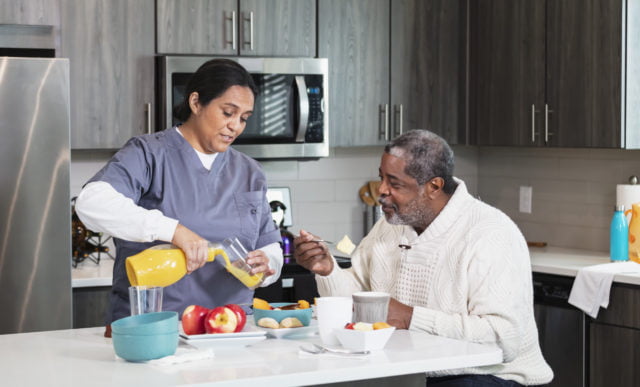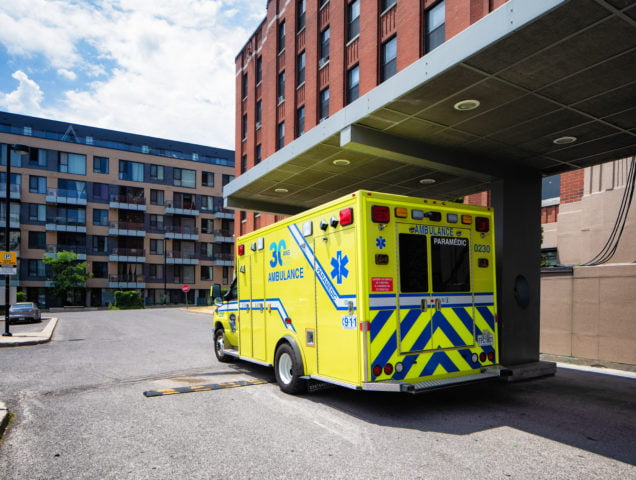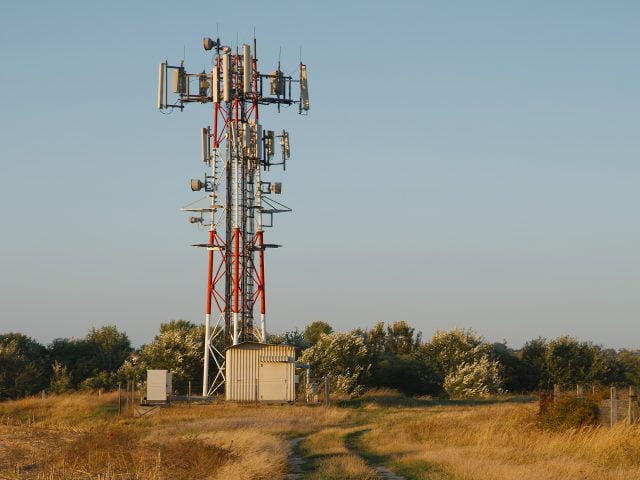Filter


Older US Workers of Color at a Disadvantage
As workers age, poor health or disabling physical conditions can interfere with holding down a job. Sometimes people are forced to quit working if things get really rough, whether they’re ready to retire or not. But race also figures into this predicament, because workers of color are already in poorer health and tend to have more vulnerable employment situations than White workers. A new study compares what’s it’s like to be an older Black, Hispanic or Asian person who is trying to keep working in two countries with similar cultures: the United States and England. The United States does not come out on top. The building blocks for this research are basic comparisons of White and minority workers’ health and…
March 28, 2023
Remote Work Didn’t Recede with Pandemic
The remote work necessitated by COVID may be here to stay in five English-speaking countries from Australia to the United States. That’s the conclusion from a study of 250 million online job ads – nearly half of them in this country. The number of postings in January that offered remote work for one or more days per week was three to five times larger than the remote work positions advertised on the cusp of the pandemic in 2019. Notably, their numbers increased sharply last year as COVID was retreating. The countries in the study are: Australia, Canada, New Zealand, the United Kingdom, and the United States. The United Kingdom has the largest share of positions advertising remote work – 18 percent. T…
March 23, 2023
COVID’s Toll on Minorities with Disabilities
It’s been well documented that the COVID recession and layoffs in 2020 were particularly hard on Black, Hispanic, and Latino Americans. But if they had a disabling physical and medical condition, they felt it much more. In a new study examining the cumulative impact of having a disability combined with the disadvantages of being an older minority worker or retiree, the racial disparities were apparent on a variety of fronts – in the inability to pay for essentials, at work, and through some difficulty obtaining medical care. Past research has shown that once the pandemic hit, people with disabilities, who tend to have lower incomes, had an even tougher time financially than in the years prior to COVID. The racia…
March 21, 2023
Racial Disparities Exist in Long-term Care
The types of long-term care located in various communities are largely driven by what their oldest residents can afford. This has created stark differences in what’s available to White and minority retirees, a new study finds. Assisted living facilities, despite the high cost, have been the fastest-growing part of the long-term care industry over the past 20 years. In the cities and suburbs, where the vast majority of Americans live, more of these facilities are located in predominantly White communities. Adult day care centers, at less than half the price of assisted living, have also expanded but are concentrated in communities of color. The research also revealed that bank redlining has contributed to the racial disparities. Historic discrimination in mortgag…
March 16, 2023
Homelessness: Can You Pass this Quiz?
Do you know the main reason Americans slip into homelessness? Are you aware of the roots of this longstanding crisis? The best way to counter negative views of homelessness is to develop a better understanding of why it exists and who it affects. The Urban Institute has put together a quick quiz to explore an issue that people with secure jobs and comfortable housing don’t think much about – and might prefer not to think about. The federal government’s latest estimate of the homeless population makes clear that little progress has been made in reducing it, despite many communities’ efforts to address it. On a single night in January 2022, 582,462 people were homeless and either living on the streets or in homeless shelters…
March 14, 2023
Post-COVID, View of Nursing Homes Erodes
COVID has moved from a central place in our lives to a risk that, while still important to heed, has moved out of the foreground. One thing we will not forget, however, is COVID’s toll on nursing homes and other long-term care facilities, where the virus has killed more than 200,000 older Americans and staff. The tragedy also played out in nursing homes in Canada, where the deaths received high-profile coverage in the news media, just as they did in this country. A survey of Canadians at the end of 2020, while COVID was still raging, indicates that the pandemic caused major changes in their thinking about old age. The reaction of a majority of people in their 50s and 60s to…
March 9, 2023
Social Security in Multigenerational Families
It’s not unusual for Black and Latino children to live with their grandparents, who are either the primary caregivers or members of a multigenerational family. And just as the grandparent is integral to the family unit, so are the Social Security benefits the grandparent receives and contributes to the household. The poverty rates in families with children would be much higher without the income from Social Security, according to new research on Wisconsin families. Nearly two-thirds of the study’s families in which a grandparent is a child’s primary caregiver rely on Social Security retirement benefits, disability benefits, or the Supplemental Security Income program (SSI), which makes small cash payments to low-income retirees and the disabled. Just under half of the three-generation households…
March 7, 2023
Advantage Plans Deny 6% of Treatments
Here’s something you should know about Medicare Advantage plans: the vast majority of these insurance policies require prior approval before a person can receive some medical treatments and services. Historically, that was not the case, and prior authorizations are still very unusual for people who are enrolled in original Medicare and a Medigap supplement. But in the case of Medicare Advantage plans, physicians submitted more than 35 million requests for prior authorization to insurers in 2021, and more than 2 million of them – or about 6 percent – were fully or partially denied, according to the Kaiser Family Foundation’s new report on more than 500 Advantage plans. Only about 11 percent of the denials were appealed, but the vast majority of…
March 2, 2023
Disability Job Programs Get Mixed Reviews
Nearly half of the people receiving federal disability benefits have a psychiatric impairment that interferes with working. And they tend to be younger and more willing to work than other disability beneficiaries. This makes them good candidates for employment support programs that encourage working at least part-time and might even prevent them from applying for benefits at all. According to a Mathematica review of research on three government jobs programs, the programs had some success in boosting participants’ employment and earnings. However, they didn’t prove effective over the long term in reducing their reliance on federal disability benefits. One federal program in Texas was geared to people with disabilities who had not applied for benefits when they entered the program. The program…
February 28, 2023
Broadband in High Disability Areas is Subpar
The Internet has become a necessity in our modern society. Yet 42 million Americans live in areas of the country where the connections to technology are subpar or, in extreme cases, nonexistent. At the same time, federal and state governments are increasingly relying on people to interact with them online. This mismatch between a growing reliance on the Internet and a lack of easy access is a problem for one especially vulnerable population: people with disabilities. Without access to a fast reliable Internet connection, it can be very difficult to apply online to Social Security for disability benefits or to file the periodic reports the agency requires of people who are receiving them. In a recent report, the Urban Institute found that counties…
February 23, 2023
Burden of High Rents Surged during COVID
As the bad first two years of the pandemic recede in the rear-view mirror, a new report reminds us how tough things got for renters. In 2021, a record 21.6 million U.S. families were paying more than 30 percent of their income on rent, which is the real estate industry’s benchmark for people whose housing costs have become a financial burden. That amounts to just under half of all renter households who were struggling during COVID – very close to the high reached during the Great Recession. And the vast majority of the 1.2 million increase from 2020’s level was in the group that struggles the most: families who pay more than 50 percent of their income to rent a…
February 21, 2023
The Case for Signing a Power of Attorney
The best reason to set up a power of attorney for yourself or an elderly family member is to avoid a far more contentious and expensive alternative later: guardianship. A power of attorney becomes urgent if an elderly family member is showing early signs of dementia. “You want to run, not walk, to get that done because capacity tends not to get better,” said Jonathan Williams, an attorney with the Clarity Legal Group in the Raleigh-Durham, N.C., area. “Having good legal documents in place, if the person has the ability to execute them, can be helpful later on,” he said. In a power of attorney, the person signing the document agrees to name an agent, usually a trusted family member…















